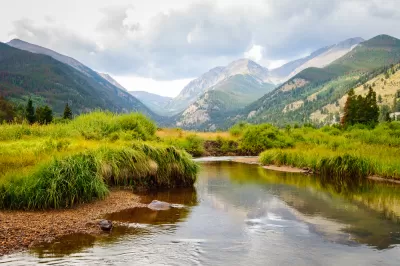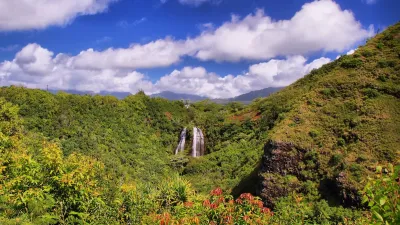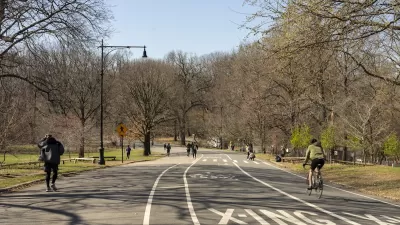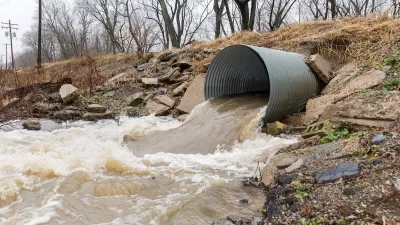Creating adaptive, sustainable communities may require rethinking some planning basics.

Stephanie Sklar, CEO of the Sonoran Institute, and George McCarthy, CEO of the Lincoln Institute of Land Policy, call for a paradigm shift in the planning field to better prepare for the impacts of climate change, grounding their argument in the context of Colorado’s state water goals. By 2025, Colorado aims for water conservation to be integrated land-use planning in communities accounting for 75 percent of the state.
"Local planners are at the forefront in addressing Colorado's water future," Sklar and McCarthy write, because the state’s water plan "recognizes the impact that land use has on water resources."
But to fulfill that goal—and build sustainable communities nationwide—planning as usual may not cut it.
The impacts of climate change could unfold into "a range of unpredictable futures," from drought to global economic loss. To prepare, planners may need to embrace the seeming antithesis of planning: uncertainty. "'What if…' should be a planner's mantra going forward," the authors suggest.
To illustrate how that philosophical shift could change the practice:
Water and wastewater infrastructure investments typically extend over a 30-year lifespan but often reflect key assumptions made at a project's initial conception. Will those assumptions hold over three decades, particularly as they relate to infrastructure payment and usage, in a more uncertain future?
Moreover, though Colorado's water plan is centered on community planning, municipalities need to adopt more cross-jurisdictional collaboration—particularly within a shared watershed.
"Planning for our future must occur at the scale of the problems we are trying to solve," the writers urge.
FULL STORY: Viewpoint: New approaches needed to meet Colorado's future water demands

Alabama: Trump Terminates Settlements for Black Communities Harmed By Raw Sewage
Trump deemed the landmark civil rights agreement “illegal DEI and environmental justice policy.”

Planetizen Federal Action Tracker
A weekly monitor of how Trump’s orders and actions are impacting planners and planning in America.

Why Should We Subsidize Public Transportation?
Many public transit agencies face financial stress due to rising costs, declining fare revenue, and declining subsidies. Transit advocates must provide a strong business case for increasing public transit funding.

Understanding Road Diets
An explainer from Momentum highlights the advantages of reducing vehicle lanes in favor of more bike, transit, and pedestrian infrastructure.

New California Law Regulates Warehouse Pollution
A new law tightens building and emissions regulations for large distribution warehouses to mitigate air pollution and traffic in surrounding communities.

Phoenix Announces Opening Date for Light Rail Extension
The South Central extension will connect South Phoenix to downtown and other major hubs starting on June 7.
Urban Design for Planners 1: Software Tools
This six-course series explores essential urban design concepts using open source software and equips planners with the tools they need to participate fully in the urban design process.
Planning for Universal Design
Learn the tools for implementing Universal Design in planning regulations.
Caltrans
Smith Gee Studio
Institute for Housing and Urban Development Studies (IHS)
City of Grandview
Harvard GSD Executive Education
Toledo-Lucas County Plan Commissions
Salt Lake City
NYU Wagner Graduate School of Public Service





























